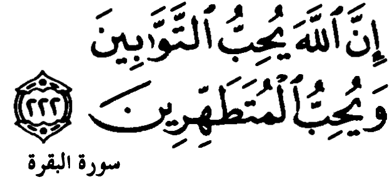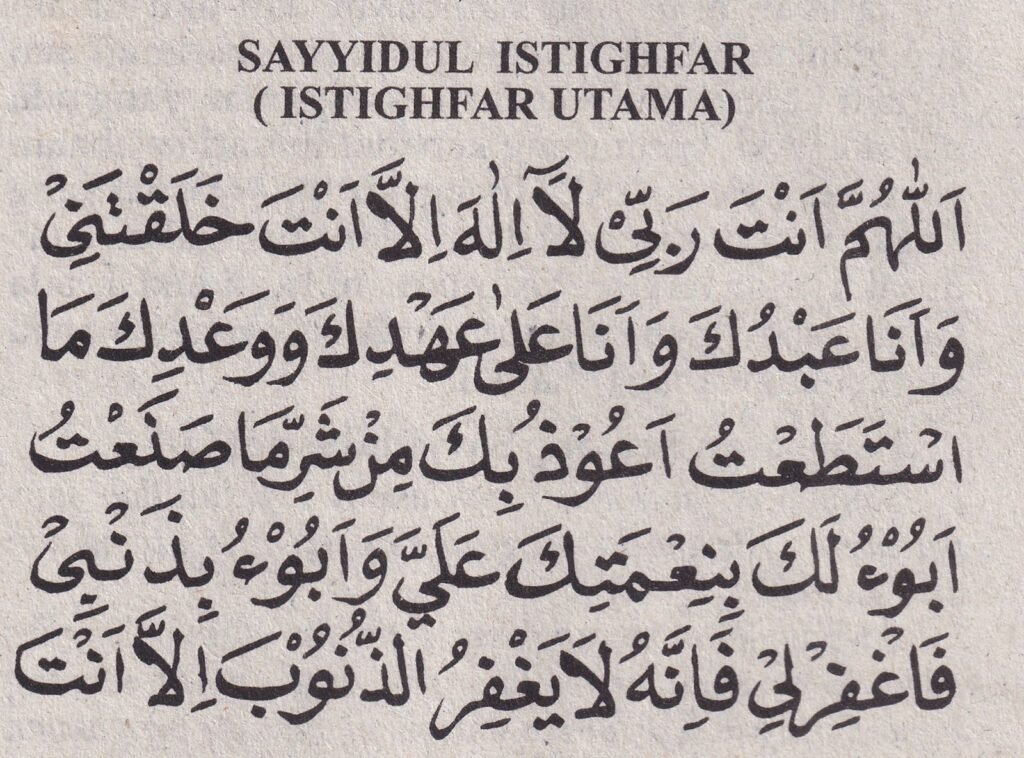Difference Between Tawbah and Istighfar
Tawbah (repentance) and Istighfar (seeking forgiveness) are two significant concepts in Islam that address the process of turning away from sin and seeking Allah’s mercy. While they are closely related and often mentioned together, they have distinct meanings and roles in a believer’s journey toward spiritual purification.
Tawbah (Repentance):
-
Definition:
Tawbah refers to a sincere act of repentance where an individual turns away from their sin and resolves to abandon it completely. It involves a deep sense of remorse and a commitment not to return to the wrongdoing.
-
Key Elements:
- Regret: Feeling genuine remorse for committing the sin.
- Abandonment: Ceasing the sinful act immediately.
- Resolution: Making a firm intention never to repeat the sin.
- Reparation: If the sin involves the rights of others, efforts must be made to correct the wrong or seek forgiveness from the affected party.
-
Focus:
Tawbah is action-oriented and emphasizes personal accountability. It marks a transformative process where the believer seeks to reform themselves and strengthen their relationship with Allah.
-
Spiritual Impact:
Through Tawbah, a person seeks to return to a state of purity and closeness to Allah, acknowledging human fallibility and Allah’s infinite mercy.
Istighfar (Seeking Forgiveness):
-
Definition:
Istighfar is the act of seeking Allah’s forgiveness for sins, shortcomings, and mistakes. It can be verbal, through phrases like Astaghfirullah (I seek forgiveness from Allah), or heartfelt, through silent supplication.
-
Key Elements:
- Acknowledgment: Admitting one’s faults and seeking pardon from Allah.
- Continuity: Istighfar is encouraged as a regular practice, even for minor mistakes and unknown sins.
- Invocation: Using specific words or supplications, such as Sayyidul Istighfar, which is a comprehensive prayer for forgiveness.
-
Focus:
Istighfar is primarily verbal and serves as a means to invoke Allah’s mercy. It reflects humility and a recognition of human dependence on Allah’s forgiveness.
-
Spiritual Impact:
Regular Istighfar cleanses the soul, softens the heart, and keeps the believer mindful of their actions. It is a way to constantly renew one’s connection with Allah.
Key Differences:
| Aspect | Tawbah | Istighfar |
|---|---|---|
| Nature | A transformative act of repentance | A verbal or silent plea for forgiveness |
| Focus | Turning away from sin and reforming life | Seeking Allah’s mercy for past sins |
| Scope | Involves regret, cessation, and resolution | Includes acknowledgment and supplication |
| Frequency | Typically linked to specific sins | Can be practiced regularly and universally |
| Outcome | Spiritual renewal and a pledge to reform | Cleansing of minor sins and Allah’s ongoing mercy |
As a Muslim, I believe that Allah is the Most Merciful and Most Kind (Al Rahman Al Rahim).
I always feel lucky to believe in such a Merciful Allah who legislates Tawbah and Istighfar for Muslims to purify and cleanse their souls from the trials of Sins and Trespassing they committed towards themselves or against others.
Tawbah ( Arabic: التوبة ) and Istighfar ( Arabic: الاستغفار ) are considered the way out from accumulating evil inside the human soul causing its destruction in the end and they represent the ultimate kindness of Allah towards his worshipers and granting them forgiveness regardless of what they have done wrong and to what extent they have sinned.
In the Holy Quran Allah Says:
(يُريدُ اللهُ أن يُخفِّفَ عنكم وخُلِقَ الإنسانُ ضعيفًا)
(Yuryd Allah ‘An Yukhfif Ankum Wkhuliq Al’Insan Daeyfa)
(Allah wants to lighten your burden, and man was created weak)
Tawbah and Istighfar are introduced as two different techniques leading to the forgiveness of Allah and purifying a Muslim’s soul, so we will go through each in detail to know what is the difference between them and how to apply each in a correct way.
What is Tawbah?
al Tawbah is Repentance to Allah after committing a sin regardless of the kind of that sin and how great it is, asking for Allah’s forgiveness and mercy.

Allah legislated Tawbah and made it obligatory for every Muslim who believes in Allah at any time and at every time.
So every Muslim must know the pillars of Tawbah to perform it in the right way. How to make Tawbah?
For sure Tawbah must be accompanied by some sort of conditions to be a True Sincere Tawbah accepted by Allah
Tawbah Conditions are summarised as follows:
- Repenting to Allah The Almighty.
- Regret committing this particular Sin.
- Abandon this Sin immediately and if this Sin is in the right of Allah, the repentant has to stop it at once, and if it is in the right of another human the repentant has to ask this human’s forgiveness and compensate him if possible.
- Intending and determining not to return doing this Sin again in the future as a sacred promise between the Muslim and Allah The Almighty.
The importance of Tawbah:
Because Tawbah is very important for any Muslim, Allah The Merciful named a complete -Surah- (a chapter in the Holy Quran) “Al Tawbah” ، “التوبة” “The Repentance” because of the great impact of “Al Tawbah” over the believers and their lives.

Al Tawbah brings the love of Allah to the repentant, making the repentant reassured, content, and living a happy life blessed by Allah.
Al Tawbah is also mentioned a lot throughout many other verses of The Holy Quran
In The Holy Quran Allah, The Almighty says:
“يَا أَيُّهَا الَّذِينَ آمَنُوا تُوبُوا إِلَى اللَّهِ تَوْبَةً نَّصُوحًا عَسَىٰ رَبُّكُمْ أَن يُكَفِّرَ عَنكُمْ سَيِّئَاتِكُمْ وَيُدْخِلَكُمْ جَنَّاتٍ تَجْرِي مِن تَحْتِهَا الْأَنْهَارُ..”
سورة التحريم، آية ٩
“O ye who believe! Turn to Allah with sincere repentance, in the hope that Allah will remove from you your ills and admit you to Gardens beneath which Rivers flow …”
Sura 66 (Al-Tahrim), ayah 08
“…إِنَّ اللَّهَ يُحِبُّ التَّوَّابِينَ وَيُحِبُّ الْمُتَطَهِّرِينَ”
سورة البقرة، آية ٢٢٢
“Surely Allah loves those who turn much (to Him), and He loves those who purify themselves.”
Sura 02 (Al-Baqara), ayah 222
“إِنَّمَا التَّوْبَةُ عَلَى اللَّهِ لِلَّذِينَ يَعْمَلُونَ السُّوءَ بِجَهَالَةٍ ثُمَّ يَتُوبُونَ مِن قَرِيبٍ فَأُولَٰئِكَ يَتُوبُ اللَّهُ عَلَيْهِمْ ۗ وَكَانَ اللَّهُ عَلِيمًا حَكِيمًا”
سورة النساء، آية ١٧
“Allah accepts the repentance of those who do evil in ignorance and repent soon afterward; to them will Allah turn in mercy: For Allah is full of knowledge and wisdom.
Sura 04 (An-Nisa), ayah 17
The importance of Tawbah is also mentioned in many Hadiths (Sunnah) for Prophet Muhammed (PBUH) as well:
Abu Huraira (may Allah be pleased with him) reported Allah’s Messenger (PBUH) as saying:
“Allah, the Exalted and Glorious, said: I live in the thought of My servant and I am with him as he remembers Me. (The Holy Prophet) further said: By Allah, Allah is more pleased with the repentance of His servant than what one of you would do on finding his lost camel in a waterless desert. When he draws near Me by the span of his hand. I draw near him by the length of a cubit and when he draws near Me by the length of a cubit. I draw near him by the length of a fathom and when he draws near Me walking I draw close to him hurriedly.”
Sahih Muslim Hadith No.6952
Salman Al Farisi (may Allah be pleased with him) reported Allah’s Messenger (PBUH) as saying:
“Verily, there are one hundred (parts of) mercy for Allah, and it is one part of this mercy by which there is a mutual love between the people and ninety-nine reserved for the Day of Resurrection.”
Sahih Muslim Hadith No.6975
Abu Huraira (may Allah be pleased with him) reported Allah’s Messenger (PBUH) as saying:
“a person who had never done any good deed asked the members of his family to burn his dead body when he died and to scatter half of its ashes over the land and half in the ocean. Allah, if Allah finds him in His grip, He would torment him with a torment with which He did not afflict anyone amongst the people of the world; and when the person died, it was done to him as he had commanded (his family) to do. Allah commanded the land to collect (the ashes scattered on it) and He commanded the ocean and that collected (ashes) contained in it. Allah questioned him why he had done it. that He said: Allah, it is out of Thine fear that I have done it and Thou art well aware of it, and Allah granted him pardon.”
Sahih Muslim Hadith No.6980
How to perform Salatul Tawbah?
Prophet Muhammed (PBUH) described to us how to perform the Prayer of Repentance in a few simple steps when the Muslim decide to repent and quit this certain sin forever:
- Perform the Wudu (Ablution) which is a certain washing technique before prayers.
- Offer 2 Rakaat Prayer, which is an intention to perform 2 units of the Islamic prayer ( Rakaa) and then perform them.
- Ask for forgiveness inside the Salatul Tawbah Prayer and Recite Dua Al Tawbah promising Allah not to come back to that Sin again.
Abu Bakr (may Allah be pleased with him) narrated that the Prophet Muhammed (Peace Be Upon Him) said:
“There is no one who sins, then purifies himself and stands in Salah and offers two Rakat and seeks forgiveness, except that Allah will forgive him.” Abu Dawood (1521)
In the Tawbah Prayer, the Muslim can recite some verses (Ayat) of The Holy Quran mentioning Forgiveness.
How to make Tawbah Dua?
Many well-known verses in The Holy Quran could be used as Tawbah Dua, as the purpose of this Dua is to ask Allah for Sins forgiveness, so the Muslim can pick any to recite during his Tawbah Prayer then ask Allah The Almighty to forgive his sin.
Examples of Tawbah Dua from The Quran to be recited in the Tawbah Prayer:
“اللَّهُمَّ اغْفِرْ لِي ذَنْبِي كُلَّهُ، دِقَّهُ وَجِلَّهُ، وَأَوَّلَهُ وَآخِرَهُ وَعَلَانِيَتَهُ وَسِرَّهُ “
“Allaahum-maghfir lee thanbee kullahu, diqqahu wa jillahu, wa ‘awwalahu wa ‘aakhirahu wa ‘alaaniyata hu wa sirrahu”
“O Allah, forgive me all my sins, great and small, the first and the last, those that are apparent and those that are hidden.”
Abu Dawud: 878
” رَبِّ اغْفِـرْ لي، وَتُبْ عَلَـيَّ، إِنَّكَ أَنْـتَ التَّـوّابُ الغَـفُورُ”
“Rabbighfir lee wa tub ‘alayya ‘innaka ‘Antat-Tawwaabul-Ghafoor.”
“Allah, forgive me and accept my repentance, You are the Ever-Relenting, the All-Forgiving.”
At-Tirmidhi: 3434 and Abu Dawud: 1516
After we talked about Al Tawbah and its characteristics, it’s time to talk about Al Istighfar to clarify the difference between them.
Istighfar Meaning
Istighfar (استغفار):
Is the act of seeking forgiveness from Allah, usually by saying Astagfirullah (Arabic: استغفر الله). A longer variant is Astaġfiru -Allah rabbi wa-Atubu ilayh (Arabic: استغفر الله ربي واتوب اليه) which means “Verily, I seek the forgiveness of “Allah RABBY”, and my Sustainer, and I turn to Him in repentance”.
Thus Istighfar is an act that must be done continuously in a Muslim’s life, and this is the main difference between Istighfar and Tawbah, The Muslim has to make Istighfar whether he sinned or not because sometimes the Muslim sins without knowing that he sinned and sometimes he forgets about his previous sins, so Istighfar is considered the Muslim’s weapon against the devil (Al Shaytan) who tries to drag the Son Of Man to hell by making him forgets his sins to accumulate over his shoulders, Also Istighfar opens the door of Allah’s continuous blessings, forgiveness and saves him from devil’s whispering.
Sayyidul Istighfar:
Prophet Muhammed (PBUH) left us a precious Dua of Istighfar called “Sayyidul Istighfar” “سيد الإستغفار” Which means The Chief Prayer for Istighfar.

Shaddad bin Aus (may Allah be pleased with him) narrates that the Holy Prophet (peace and blessings of Allah be upon him) said:
The most superior way of asking for forgiveness from Allah is:
“اللَّهُمَّ أَنْتَ رَبِّي لَّا إِلَهَ إِلَّا أَنْتَ، خَلَقْتَنِي وَأَنَا عَبْدُكَ، وَأَنَا عَلَى عَهْدِكَ وَوَعْدِكَ مَا اسْتَطَعْتُ، أَعُوذُ بِكَ مِنْ شَرِّ مَا صَنَعْتُ، أَبُوءُ لَكَ بِنِعْمَتِكَ عَلَيَّ، وَأَبُوءُ بِذَنْبِي فَاغْفِر لِي فَإِنَّهُ لَا يَغْفِرُ الذُّنُوبَ إِلَّا أَنْتَ.”
“Allahumma anta rabbee la ilaha illa ant, khalaqtanee wa-ana AAabduk, wa-ana AAala AAahdika wawaAAdika mas-tataAAt, aAAoothu bika min sharri ma sanaAAt, aboo-o laka biniAAmatika AAalay, wa-aboo-o bithanbee, faghfir lee fa-innahu la yaghfiruth-thunooba illa ant.”
“O Allah, You are My Allah, none has the right to be worshipped except You, You created me and I am Your servant and I abide by Your covenant and promise as best I can, I take refuge in You from the evil of which I have committed. I acknowledge Your favor upon me and I acknowledge my sin, so forgive me, for verily none can forgive sin except You.”
The Holy Prophet added: “If somebody recites it during the day with firm faith in it, and dies on the same day before the evening, they will be from the people of Paradise; and if somebody recites it at night with firm faith in it, and dies before the morning, they will be from the people of Paradise.”
Sahih Al-Bukhari, Volume 8, Book 75, Number 318
Meaning of Sayyidul Istighfar Dua
No one has the right to be worshiped except Allah, so this is why he is the one and only who forgives my sins as he is my creator and I am his servant.
I always seek his forgiveness and I take refuge in him from the sin and evil I committed, and I hereby confess in front of his majesty about the sin I committed and I acknowledge his favors upon me hoping that he will forgive me and grant me his blessings as no one can forgive except him.
Sayyidul Istighfar Benefits
- Whoever makes it a habit to recite Sayyidul Istighfar once a day, if possible, recites it once after every prayer, then Allah will forgive all his sins.
- One who recites Sayyidul Istighfar, his heart inclined towards good deeds, his heart will be pleased with the worship of Allah.
- Allah will bestow him with peace of heart and mind.
- Recitation of Sayyidul Istighfar frequently after true repentance before Allah is proof of forgiveness of sins.
Istighfar In Quran
In The Holy Quran There are many verses that command all the believers to always seek and ask Allah’s forgiveness and turn to him, and here are some examples of these verses:
“وَمَن يَعْمَلْ سُوٓءًا أَوْ يَظْلِمْ نَفْسَهُۥ ثُمَّ يَسْتَغْفِرِ ٱللَّهَ يَجِدِ ٱللَّهَ غَفُورًۭا رَّحِيمًۭا”
“Whoever commits evil or wrongs themselves then seeks Allah’s forgiveness will certainly find Allah All-Forgiving, Most Merciful.”
“Wa Man Yamal Sou’an Aw Yazlem nafsaho thoma yastaghfer Allaha,yaged Allaha tawaban rahyma”
Surah An-Nisa – 110
“وَأَنِ ٱسْتَغْفِرُوا۟ رَبَّكُمْ ثُمَّ تُوبُوٓا۟ إِلَيْهِ يُمَتِّعْكُم مَّتَـٰعًا حَسَنًا إِلَىٰٓ أَجَلٍۢ مُّسَمًّۭى وَيُؤْتِ كُلَّ ذِى فَضْلٍۢ فَضْلَهُۥ ۖ وَإِن تَوَلَّوْا۟ فَإِنِّىٓ أَخَافُ عَلَيْكُمْ عَذَابَ يَوْمٍۢ كَبِيرٍ”
“And seek Allah’s forgiveness and turn to Him in repentance. He will grant you a good provision for an appointed term and graciously reward the doers of good. But if you turn away, then I truly fear for you the torment of a formidable Day.”
“Wa An estaghfero Rabakom wa tobu elyh yomateakom mataan hasanan ela agalalen mosama wa youate kola zy fadlen fadlah,wa en tawalaw faeny akhaf alaykom azab yawmen kabeer”
Surah Hud – verse 3
“وَٱلَّذِينَ إِذَا فَعَلُوا۟ فَـٰحِشَةً أَوْ ظَلَمُوٓا۟ أَنفُسَهُمْ ذَكَرُوا۟ ٱللَّهَ فَٱسْتَغْفَرُوا۟ لِذُنُوبِهِمْ وَمَن يَغْفِرُ ٱلذُّنُوبَ إِلَّا ٱللَّهُ وَلَمْ يُصِرُّوا۟ عَلَىٰ مَا فَعَلُوا۟ وَهُمْ يَعْلَمُونَ.”
“And those who, when they commit an immorality or wrong themselves by transgression, remember Allah and seek forgiveness for their sins, and who can forgive sins except Allah? And who do not persist in what they have done while they know.”
“Wa allazyna eza faaloua faheshatan aw zalamoa anfosahom,zakaro Allaha fastaghfaroa lezonobehem,wa man yaghfera alzonoob ella Allaha wa lam yoseroa ala ma faaloa wa hom yaalamoon.”
Surah Al ‘Imran – 135
Hadith About Istighfar
عن أبي هريرة قال سمعت رَسُول اللَّهِ صلى الله عليه وسلم يقول: (والله إني لأستغفر اللَّه وأتوب إليه في اليوم أكثر من سبعين مرة).
Abu Hurairah (May Allah be pleased with him) reported:
I heard the Messenger of Allah (ﷺ) saying: “By Allah, I seek Allah’s forgiveness and repent to Him more than seventy times a day.”
Al-Bukhari (6307)
.عن ابن عباس رضي الله عنه قال: قال رسول الله صلى الله عليه وسلم : “من لزم الاستغفار ، جعل الله له من كل ضيق مخرجاً ومن كل هم فرجاً، ورزقه من حيث لا يحتسب”.
Ibn ‘Abbas (May Allah be pleased with them) said:
The Messenger of Allah (ﷺ) said, “If anyone constantly seeks pardon (from Allah), Allah will appoint for him a way out of every distress and a relief from every anxiety, and will provide sustenance for him from where he expects not.”
Riyad as-Salihin 1873
Istighfar Dua
Prophet Muhammed (PBUH) left us many forms of douaa istighfar so we can recite them night and day asking for Allah’s continuous forgiveness and receiving his blessing throughout our entire life.
Such as:
“ٱللَّٰهُمَّ إنِّي أسْأَلُكَ يَا ٱللَّٰهُ بِأَنَّكَ ٱلْوَاحِدُ ٱلأَحَدُ ٱلصَّمَدُ ٱلَّذِي لَمْ يَلِدْ وَلَمْ يُولَدْ وَلَمْ يَكُنْ لَهُ كُفُوًا أَحَدٌ أَنْ تَغْفِرَ لِي ذُنُوبِي إِنَّكَ أَنْتَ ٱلْغَفُورُ” ٱلَّرَحِيمُ
“Allahumma inni as’aluka ya Allah! Bi-annakal-Wahidul-Ahad us-Samad, alladhi lam yalid wa lam yowled, wa lam yakun lahu kufuwan ahad, an taghfirali dhunubi, innaka antal-Ghafurur-Rahim.”
“O Allah! I ask You, O Allah, You are the One, the Only, Self-Sufficient Master, who was not begotten and begets not and none is equal to Him. Forgive me my sins, surely you are Forgiving, Merciful.”
Narrated by Hanzalah bin ‘Ali (R.A.), Sunan an-Nasa’i (1301)
ٱللَّٰهُمَّ ٱغْفِرْ لِي وَٱرْحَمْنِي وَعَافِنِي وَٱهْدِنِي وَٱرْزُقْنِي
“Allahumma-ghfir li, warhamni, wa ‘afini, wahdini, warzuqni.”
“O Allah! Forgive me, have mercy on me, guide me, guard me against harm, and provide me with sustenance and salvation.”
Narrated by Tariq bin Ashyam (R.A.), Riyad as-Salihin (1496)
عن أبي بكر الصديق رضي الله عنه أنه قال لرسول الله صلى الله عليه وسلم: علمني دعاء أدعو به في صلاتي، قال: ”قل: اللهم إني ظلمت نفسي ظلمًا كثيرًا، ولا يغفر الذنوب إلا أنت، فاغفر لي مغفرة من عندك، وارحمني، إنك أنت الغفور الرحيم”
Abu Bakr As-Siddiq (May Allah be pleased with him) reported
I requested the Messenger of Allah (ﷺ) to teach me a supplication which I could recite in my Salat (prayer).
Thereupon he said, “Recite:
“Allahumma inni zalamtu nafsi zulman kathiran, wa la yaghfirudh- dhunuba illa Anta, faghfir li maghfiratan min ‘indika, warhamni, innaka Antal-Ghafur-ur-Rahim.”
“O Allah! I have considerably wronged myself. There is none to forgive the sins but You. So grant me pardon and have mercy on me. You are the Most Forgiving, the Most Compassionate.”
Al-Bukhari and Muslim
Riyad as-Salihin 1475
Conclusion
After we went through istighfar and tawbah concepts and definitions with the discussion of some examples for each, it is now clear that the main difference between al Tawbah and al Istighfar is that e Tawbah is required for a certain sin that a Muslim committed and asking Allah to forgive that sin in particular, but Istighfar is a routine in the Muslim’s life regularly in his prayers and his Dua asking Allah for general forgiveness leading to receiving of continuous blessings from Allah and considered as a strong weapon against devil’s (shaytan) traps.
Do you want your kids to learn more about Online Islamic studies Classes? Sign up for Quran Oasis’s Online Islamic studies Classes program and watch them dive deeper into the Quran science and learn the Holy Book of Allah.
Quran Oasis’s online Arabic classes for kids, Quran classes for adults and let your children learn the accurate Quran recitation and word pronunciation even if Arabic is not their first language.
Quran teaching for children in Quran Oasis is fun as well as structured, they’ll learn with eLearning Quran;
Our Quran teacher, Arabic teacher, Islamic Studies teacher, tajweed teacher, ( House of Quran ) will be their friends during this amazing journey.
Online Quran tuition learning can be challenging if you’re seeking it for your kids. Quran Oasis offers you a wide variety of topics to teach your children online.
Quran Oasis’s experienced live tutor ( male teacher & female teacher ). They have many years of experience in Teaching Arabic online and the Quran online to non-Arabic speakers.
Whether it’s Quran online, Arabic online, Tajweed, Ijazah, tafsir, Qirat, tajwid al Quran, and Islamic Studies . Quran Oasis has your back with professional Quran tutors who are willing to go further with your kids’ education. With an attractive interface and well-structured lessons,
Quran Oasis gives you and your children the chance to learn with Quran ayat who are going to be your kids’ new friends, accompanying them in their learning process and encouraging them to learn more.
Quran Oasis ( online Quran institute ) is the best Quran class online
benefits of tawbah
And we can mention the Virtues of Tawbah as follows :
- Tawba Makes You A Beloved Of Allah.
- Tawba Changes Evil Deeds Into Good Deeds.
- Tawba Brings Happiness In Life.
- Prayers Are Accepted By Tawba.
- Any Number Of Sins Will Is Pardoned Through Tawba.
benefits of Istighfar
Also, Virtues of Istighfar are summarized as follows:
- Istighfar increases the blessings of Allah (both material and spiritual).
- Istighfar is one of the ways of finding inner peace and tranquillity.
- Istighfar purifies one from the physiological results of sins.
- Istighfar turns evil deeds into good deeds.
- Istighfar paves the way for the acceptance of prayer.
- Allah forgives those who sincerely seek Istighfar unconditionally.
Now you know everything about At-Tawbah and Istighfar, so what are you waiting for? Go ahead and seek Allah’s forgiveness and start living happily ever after.

